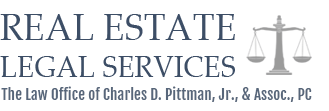The Zombie Title – One More Reason to Attend Your Own Foreclosure Auction
Night of the Living Dead Real Estate Titles? The Walking Dead Land Title? Most home owners who fight the good fight against foreclosure but lose, are so defeated in spirit that the last thing they want to do is attend their home’s foreclosure auction. It is embarrassing and these sales rarely yield good news for the homeowner. But unless your house has black mold or some other dangerous condition, 99% of the time, the best course of action is to remain in your house as long as possible and attend your own foreclosure auction! Don’t let your title stay in the court house of the living dead where it is disavowed by the lender and still in your name!
This is counter-intuitive to the temptation to just “walk away”. What is the worst that can happen? In a shocking article about homeowners who thought the bank had taken their home but didn’t, Reuters discloses new worst case scenario consequences:
It is entirely possible for the consequences of still holding title to a home you thought you had lost to shift from civil consequences to criminal consequences! If that happens, even bankruptcy may not eliminate the burden!!!
Among other problems that even bankruptcy will not fix . . . imputed assets from zombie titles that may disqualify a former homeowner from certain governmental benefits. In the Reuters article, JP Morgan Chase decided to “walk away” from a foreclosure they had begun on the home of a Mr. Keller.
Homeowners need to: (1) attend their own foreclosure auction if at all possible. They can make certain that the bank follows through with an advertised foreclosure and that the “gavel comes down” at the auction. Some homeowners have tried to protect themselves by recording their own “deed in lieu of foreclosure” to expedite getting the Zombie Title out of their name and make it a nightmare to the lender. The results are mixed with this strategy but it can help temporarily to avoid incurring a $300 grass cutting bill.
Homeowners must also: (2) remember that every “mortgage” or “deed of trust” is a two edged sword. In most cases, the lenders recover from mortgage default by using the security instrument to foreclose on the home. But the lender also has the option to pursue a recovery through suing to collect on the promissory note that is secured by the mortgage.
The consequences of “walking away” are simply too far reaching to make that decision without good advice and legal protection. As with Mr. Keller, don’t move out simply because the lender tells you to move out. Even if the lender has taken back your property in foreclosure and holds title as REO (bank real estate owned), the lender must still follow all state rules of eviction and give you due process in taking possession of your home from you. Don’t underestimate the benefit of using the time between default and starting to pay rent on a new home as a time to catch your breath financially. In many cases, the lender will give you financial incentives, e.g., cash for keys, to try to get possession of the property faster and more cheaply than they can by suing for eviction. Those incentives seem to flow more frequently in cases where the lender is aware that the homeowner has legal protection and equal bargaining and negotiating power through a knowledgeable law firm.


